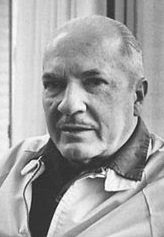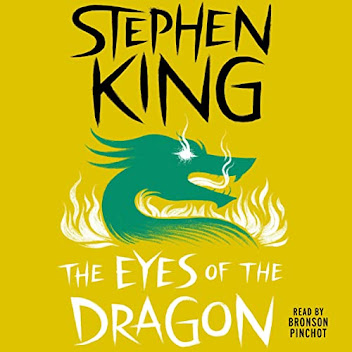Farnham's Freehold (audiobook) by Robert A. Heinlein
Often frustrating. Sometimes shocking. Never boring.
Read by Tom Weiner
Duration: 10 hours, 24 minutes.
Blackstone Audio
Unabridged.
Unabridged.
Robert A. Heinlein was recognized many times over as a master of the science fiction tale – he is a multiple winner of the Hugo award and the first recipient of the Grand Master Award for lifetime achievement. Heinlein is one of those golden age writers that moved science fiction from being stories strictly for kids to a separate and recognized literary genre for adults, too.
Farnham’s Freehold is, at best, a difficult book. Perhaps books like this were a requirement when moving science fiction from a kid’s genre to an adult genre. It seems that Heinlein the iconoclast was out to irritate as many sensibilities as possible in an attempt to question some of society’s long held ideas about race, sex and the male-female relationships, even if it caused the story to suffer at the expense of all of that questioning.
The story first appeared as a magazine serial in 1964 and has some superficial similarities to Pierre Boulle’s 1963 novel Planet of the Apes. The story features Hugh Farnham, a building contractor, and his family. They live in a suburban Colorado neighborhood during an undefined time, most likely the mid to late 1960s at the height of the Cold War. The Soviet Union and the United States have maintained a Cuban Missile Crisis state of readiness and it is clearly getting worse.
Hugh Farnham is prepared for nuclear war, however. As already noted, he is a contractor and he has designed, built and stocked a fallout shelter. Nuclear war begins while the entire Farnham clan (and a visitor) are home so Hugh quickly moves his wife, college-aged daughter, her sorority sister, his lawyer son and their house servant Joseph into the shelter. The Farnham family is white while Joseph is African American. They all survive the attack and emerge in a world that is not destroyed, but actually a lush forest with wildlife and no radiation and no sign of the nuclear war that occurred.
 |
| Robert A. Heinlein (1907-1988) |
The Farnham family just may be the most dysfunctional family in all of science fiction. Mrs. Farnham is so chemically dependent that in literally every scene she is either passed out, drunk, high or looking to get drunk or high. Her daughter openly considers incest with her father or her brother. The brother Duke gets into two fistfights with his father, fawns over his mother and openly hates Joseph because of his race. Hugh advocates eugenics, seriously threatens to kill his son several times, orders everyone to take sleeping pills and alcohol or other drugs on a regular basis, openly leers at his daughter’s naked body, insists that everyone walk around naked in multiple scenes and conceives a child with his daughter’s best friend during the nuclear attack while his wife sleeps in the next room after he has drugged her.
This creepy cast of characters and their fallout shelter are actually thrown about 2,000 years into the future – that is the reason for the lush landscape rather than a nuclear wasteland – Colorado has had time to recover. They set out to build a little settlement in the wilderness and Heinlein goes to great lengths to describe everything that Farnham included in the shelter and the difficulties that modern people would have in going back to a log cabin lifestyle.
Hugh assumed that they were in some sort of Eden and makes plans to re-populate the Earth. One day, however, flying ships arrive and the Farnham’s discover that the world is a very different place than they had assumed. The lush wilderness actually belongs to a feudal type lord who is part of a worldwide, very high tech culture based on countries that were not part of the American-Russian nuclear war – Africa, India, the Arab world and some parts of Latin America, but especially Africa and India. Race becomes an issue, and the ruling ethnic groups are a complete reversal from the situation that the Farnhams knew back home.
Skin color is still important but whites are the enslaved and the ruling class is entirely made up of people with darker skins tones. White females are primarily used for sexual entertainment (they are called “sluts” – a word that Heinlein must use a hundred times in the second half of the book) and white males are used for all sorts of labor. Hugh wants to escape with Barbara, his daughter’s best friend, because their sexual encounter during the nuclear attack has resulted in twin sons. Hugh is particularly motivated to act quickly once he discovers that the ruling class is fond of eating white people and he fears that one of his sons or Barbara will be a victim of cannibalism. Farnham’s plans to escape and possibly return to his own time take up the last quarter of the book. As Farnham puts it, “We go on…no matter what happens.”
As I listened to Farnham’s Freehold I questioned Heinlein’s motives throughout. I had to wonder why Heinlein included such things as the open and positive discussion of incest and why he made every female character weak and dependent - their entire world revolves around men – they attach themselves to them and have little else in their lives but their approval or their scorn. His continual reference to them as “sluts” in the last half of the book only reinforces that thought. The choice to make the African rulers of the world some 2,000 years from now cannibals is, for me, the most confusing aspect of the book. What seemed a neat trick to show the folly of racism by having the positions reversed instead becomes a reinforcement of the most pathetic of racial stereotypes from the days when Africa was known as the “dark continent.”
The only conclusion I can come to is that Heinlein was just writing in what interested him and really did not care if it went down smoothly with his readers – he was in full iconoclast mode. In that case, he achieved his goal. At best, this is an uncomfortable book with some good points mixed in with the bad, like an elderly relative that can give good advice and in the next breath go off on some racist or sexist rant. At worst, Farnham’s Freehold is an anti-minority, anti-woman survivalist rant. It is oftentimes frustrating. It is sometimes shocking. It is never boring.
Tom Weiner read the book. He did an exceptionally good job with the voices of Hugh Farnham and Joseph. His female voices were not as good, but they were also hampered by Heinlein’s oftentimes-stilted female dialogue.
I rate this audiobook 2 stars out of 5 and it can be found on Amazon.com here: Farnham's Freehold by Robert A. Heinlein.
Reviewed on July 8, 2011.











Comments
Post a Comment